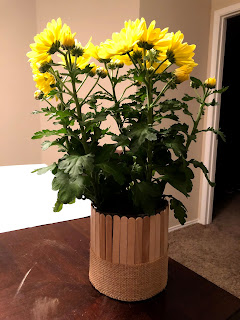MamaJama · May 31, 2018. (n.d.). My Conscious Decision. Retrieved from https://multiplesclerosis.net/stories/my-conscious-decision/
This blog post was written by a woman who is experiencing life dealing with multiple sclerosis. She talks about how during this 11 years of her diagnosis, she can tell you all of the things she has lost and what the disease has taken from her. However, she is so positive about it. She mentions how she doesn't want to dwell on what her life could have been or what she could have been doing because she knows nothing in life happens on accident. She takes her set backs and uses them as stepping stones. She mentions how she has learned what is important is to be genuine, smile at people and tell them that you love them because everyone deserves to be and feel loved. She wrote this post the night before her 45th birthday. She says that on this journey, she isn't taking anything that weighs her down. She wants memories and laughter and chocolate.
I chose this because, like the other posts I have written about, she is positive and her outlook on life while dealing with a disease that is crippling is so positive. She focuses on the good; she is happy and while she can't do everything she used to do, she isn't useless. She isn't carrying the burden of "what if" around. It is really just so important to me to see people with a positive attitude. I like to think I am a positive person, and I would really hope that I would have the same sunshine-y attitude.
I think what I learned from this post greatly reflected what we had learned in lecture about multiple sclerosis. She doesn't mention which type of MS she has, but from the way she talks she never recovers to baseline. She has lost sensation on one side, she has problems with vision on one side and can no longer walk unassisted without a walker. one thing that really struck me was how she can't handle the heat anymore. I think that is interesting and I would want to know if she can't handle the heat from the disease and its affects or from the medications she has to help with symptoms from the MS. I would recommend this article to anyone, honestly. It is just a moving and uplifting post that just goes to show that even in the bad times, you can still be optimistic.

